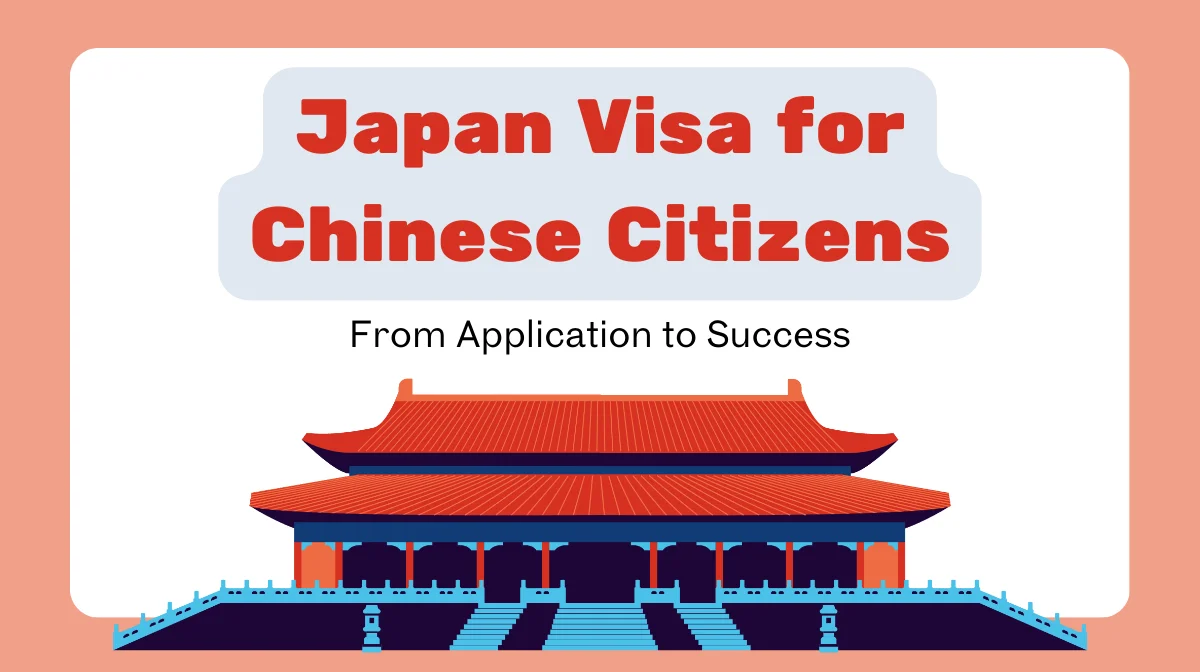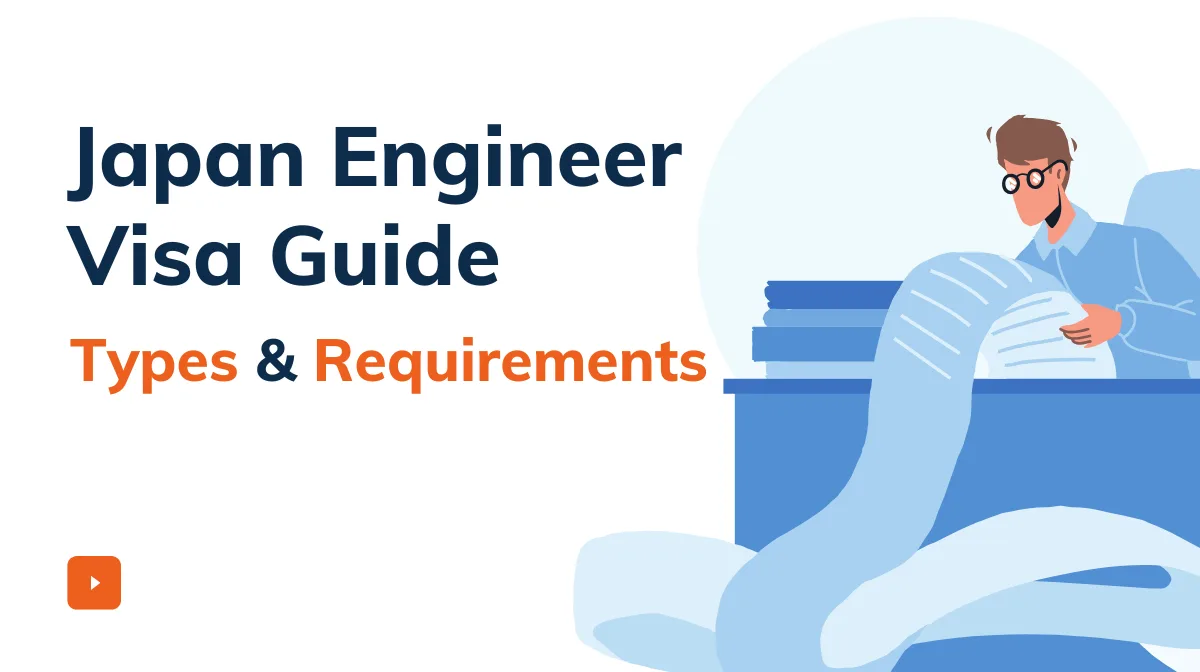Chinese IT engineers need proper Japan visa applications while understanding China-specific academic credential issues, document translation requirements, and cultural differences.
This guide covers application procedures for Chinese residents, international students, and career changers, including common pitfalls and recent system changes.
- Japan visa types and requirements for Chinese IT engineers.
- Application procedures and common denial causes to avoid.
- Latest updates and cultural tips for career success.
1. Japan Visa Requirements for Chinese Citizens: IT-Specific Considerations
Chinese IT engineers face unique challenges due to China’s distinct educational system and document requirements. Understanding these challenges early enables smooth applications.
Academic Credential Recognition
China’s education system differs from Japan’s, creating common recognition issues.
Common Problems
- Junior college graduates may lack degree certificates
- Graduation certificates alone don’t prove Japanese equivalency
- Different requirements for degree acquisition vs. graduation
Solution
Obtain a CHSI (China Higher Education Student Information Center) verification report. This official document shows your Chinese degree’s Japanese equivalent, streamlining visa reviews. CHSI Japan offices allow applications without traveling to China.
Document Translation Requirements
All Chinese documents require accurate Japanese translations with certification. Use technical terminology correctly, translate job titles properly, and obtain translator qualification certification. Create accuracy declarations at Japanese notary offices for certification.
Employment History Verification
Chinese employment certificates differ from Japanese formats. Include specific programming languages, project roles, technical achievements, and detailed employment periods. Use colleague testimonials, pay stubs, or social insurance records when previous companies are unavailable.
China-Specific System Compliance
Chinese documents may require Apostille certification, especially criminal background checks and graduation certificates. Social credit system issues can impact visa screening, so verify your status beforehand.
■Related Reading
Understanding the broader visa landscape helps Chinese IT engineers make informed decisions about their career path in Japan.
2. Cultural Adaptation for Chinese IT Workers in Japan
Success requires cultural adaptation alongside technical skills. Chinese and Japanese IT industries have distinct differences.
Work Style Differences
China prioritizes results and efficiency while Japan emphasizes processes and team communication. China favors individual decisions while Japan requires consensus building. Understanding Japanese quality control processes is essential for workplace integration.
High-Value Technical Fields
Chinese engineers excel in AI/machine learning, deep learning, big data, search systems, and FinTech. Major Chinese IT company experience is highly valued by Japanese employers.
Japanese Language Impact
JLPT N2 or higher is required, plus business Japanese for technical documents. Kanji knowledge helps with technical terminology understanding.
■Related Reading
Mastering cultural differences is crucial for long-term career success in Japan’s tech industry.
■日本でエンジニアとしてキャリアアップしたい方へ
海外エンジニア転職支援サービス『 Bloomtech Career 』にご相談ください。「英語OK」「ビザサポートあり」「高年収企業」など、外国人エンジニア向けの求人を多数掲載。専任のキャリアアドバイザーが、あなたのスキル・希望に合った最適な日本企業をご紹介します。
▼簡単・無料!30秒で登録完了!まずはお気軽にご連絡ください!
Bloomtech Careerに無料相談してみる
3. Japan Visa Types for Chinese IT Engineers
Chinese IT engineers need appropriate residence status depending on work history, education, and plans.
Technical/Humanities/International Services Visa
90% of Chinese IT engineers obtain this common work visa. Requirements include university graduation, vocational school completion, 10+ years experience, or designated IT qualifications. Benefits include full-time employment and family accompaniment, but has activity restrictions and 10-year permanent residence wait.
Highly Skilled Professional Visa
Point-based system requiring 70+ points with 3 million yen minimum income. Points from education (PhD: 30), experience (10+ years: 25), income (10+ million: 40), age (under 29: 15), and IT qualifications.
Benefits include 5-year periods, 1-year permanent residence track, spouse work permission, and parent accompaniment.
Other Visa Types
Short-term visas allow unpaid training but prohibit employment. Permanent residence offers unlimited work freedom, requiring 10 years residence, good conduct, and financial independence.
4. Japan Visa Procedures for Chinese Citizens Already in Japan

Proper visa management ensures stable residence for working Chinese IT engineers.
Visa Period Extension
Renew residence periods regularly. Apply 3 months before expiration with standard documents. Processing takes 2-4 weeks with 4,000 yen fees. Job changes require additional documentation and stricter screening.
Job Change Procedures
Required Steps
- Submit organization change notification within 14 days
- Obtain work qualification certificate (recommended)
Work qualification certificates cost 2,000 yen with 1-3 month processing but simplify future renewals.
Upgrading to Highly Skilled Professional
Engineers with 70+ points and 300+ million yen income can upgrade for enhanced benefits including longer periods and permanent residence fast-tracking.
■日本でエンジニアとしてキャリアアップしたい方へ
海外エンジニア転職支援サービス『 Bloomtech Career 』にご相談ください。「英語OK」「ビザサポートあり」「高年収企業」など、外国人エンジニア向けの求人を多数掲載。専任のキャリアアドバイザーが、あなたのスキル・希望に合った最適な日本企業をご紹介します。
▼簡単・無料!30秒で登録完了!まずはお気軽にご連絡ください!
Bloomtech Careerに無料相談してみる
5. Japan Visa Applications for Chinese Citizens Planning IT Careers
Procedures vary based on current residence and circumstances.
From China to Japanese IT Companies
Use Certificate of Eligibility applications. Companies apply for certificates (1-3 months), mail to China, then apply at consulates (1-2 weeks) and enter within 3 months. Companies provide contracts and financial statements; applicants provide education documents, employment history, CHSI reports, and translations.
Job Changes Within Japan
Same job types need only notifications and certificates. Different job types require status changes with strict relevance screening.
6. Success Conditions for Japan Visa Applications by Chinese IT Engineers
Success requires objective technical proof and proper documentation.
Education and Programming Skill Proof
Use CHSI reports for credential verification, clarify university distinctions, and include transcripts showing job relevance. Demonstrate skills through portfolios, GitHub accounts, technical certifications, and detailed project records.
Practical Experience Appeals
Show specific contributions through project descriptions, problem-solving examples, quantified achievements, latest technology experience, and international team participation.
■Related Reading
Learn how Chinese professionals can successfully transition their careers to Japan’s thriving IT market.
7. Common Japan Visa Failures for Chinese Citizens and Solutions
Understanding failures enables proactive countermeasures.
Education-Job Mismatch
Most common denial reason is insufficient academic-job relevance.
Solutions
- Document supplementary technical learning
- Explain logical study-duty connections
- Present practical skill evidence
Technical Level-Salary Mismatch
Salary must equal or exceed Japanese employee levels.
Solutions
- Research appropriate market compensation
- Obtain technical qualifications proving skills
- Include salary increase plans
Other Common Issues
Address company stability with detailed business documentation, Chinese document problems with CHSI certification and professional translations, and job change history with consistent career narratives.
8. 2025 Japan Visa Changes for Chinese Citizens in IT

Major revisions create favorable conditions for Chinese IT engineers.
Digital Talent Preferential Treatment
New measures include relaxed education requirements for IT qualifications, shortened processing (2 weeks vs. 1-3 months), extended initial periods (3-5 years), and reduced family income requirements.
Remote Work Era Adaptations
Systems accommodate multiple company employment, expanded freelance activities, regional incentives, and comprehensive online applications.
Point System Updates
Changes include increased IT qualification values (15 vs. 5 points), enhanced Japanese recognition (N2: 15, N1: 20), regional adjustments, and startup bonuses.
■Related Reading
Stay updated on Japan’s growing demand for foreign software engineering talent and related opportunities.
9. Real Japan Visa Experiences from Chinese IT Engineers
Successful engineers demonstrate strategic planning and system utilization.
Success Stories
Zhang (Peking University) succeeded through GitHub participation, N1 certification, and comprehensive portfolios. Li (Alibaba veteran) leveraged multinational experience and cloud expertise.
Wang progressed from vocational school to permanent residence through systematic career building. The Chen couple utilized skilled professional benefits for dual careers.
Turnaround Success
Yang overcame initial denial through cause analysis, detailed explanations, and professional support.
■Related Reading
Explore comprehensive salary information to make informed career decisions in Japan’s competitive IT market.
10. Japan Visa Success Guide for Chinese Citizens: Key Takeaways
Success requires understanding China-specific challenges and leveraging recent system improvements. Key factors include CHSI verification, competitive salaries, and consistent career narratives.
Recent digital talent measures offer significant advantages: shortened processing, relaxed requirements, and enhanced remote work provisions. Combined with Japan’s IT talent shortage, qualified Chinese engineers now have unprecedented opportunities.





















